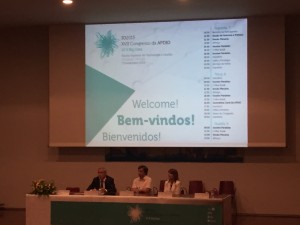This paper analyzes a realistic variant of the permutation flow-shop problem (PFSP) by considering a non-smooth objective function that takes into account not only the traditional makespan cost but also failure-risk costs due to uninterrupted operation of machines. After completing a literature review on the issue, the paper formulates an original mathemati- cal model to describe this new PFSP variant. Then, a Biased-Randomized Iterated Local Search (BRILS) algorithm is proposed as an efficient solving approach. An oriented (biased) random behavior is introduced in the well-known NEH heuristic to generate an initial solution. From this initial solution, the algorithm is able to generate a large number of alternative good solutions without requiring a complex setting of parameters. The relative simplicity of our approach is particularly useful in the presence of non-smooth objective functions, for which exact optimization methods may fail to reach their full potential. The gains of considering failure-risk costs during the exploration of the solution space are an- alyzed throughout a series of computational experiments. To promote reproducibility, these experiments are based on a set of traditional benchmark instances. Moreover, the performance of the proposed algorithm is compared against other state-of-the-art metaheuristic approaches, which have been conveniently adapted to consider failure-risk costs during the solving process. The proposed BRILS approach can be easily extended to other combinatorial optimization problems with similar non-smooth objective functions.
- Ferrer A., Guimarans D., Ramalhinho H.R. and Juan A.A. (2015), A BRILS Metaheuristic For Non-Smooth Flow-Shop Problems with Failure-Risk Costs, Expert Systems with Applications (accepted for publication) doi:10.1016/j.eswa.2015.09.011
- On the UPF web in Catalan and Spanish.

 stics International Conference (
stics International Conference ( conference organized by
conference organized by